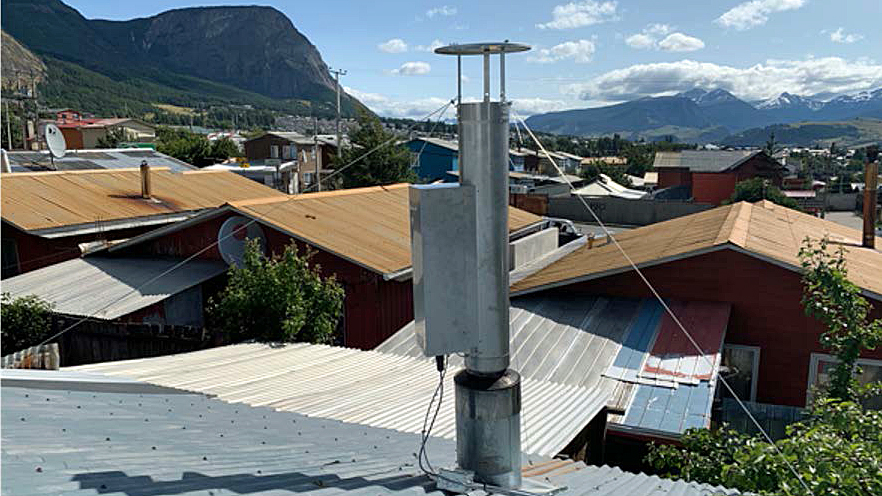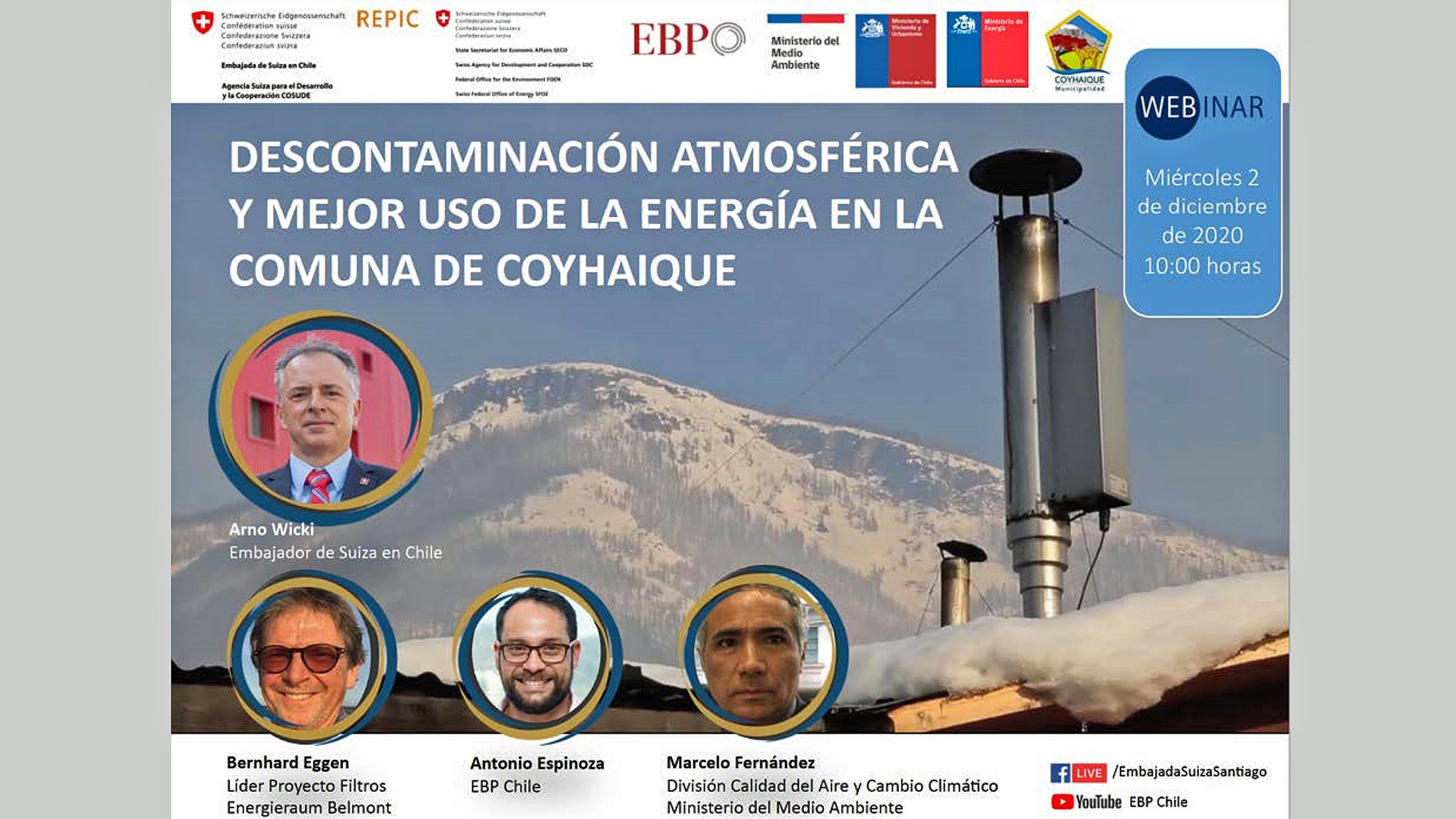

Swiss Partners
OekoSolve AG
www.oekosolve.ch
Daniel Jud
Belmont Energie Raum GmbH
Bernhard Eggen (project management)
Project Type:
Technology:
Country:
Project Status:
Project Start:
End of Project:
Contract:
Documentation
Swiss Contribution
OekoSolve Ltd. has been developing and producing electrostatic fine dust filters for over ten years. Dust filters in various performance classes have been continuously optimized over the years. Simple handling, operational reliability and easy maintenance are central elements of these electrostatic precipitators. Mr. Bernhard Egger, Project Manager, is a proven energy expert with many years of entrepreneurial experience.
Description
Air pollution in southern Chile’s cities – especially from fine dust particles caused by wood-fired systems used for heating and cooking – is a current problem. In cooperation with the city of Coyhaique, twin city with Bern, the “Agencia de Sostenibilidad Energética”, the University of Santiago, the developers of a fine dust filter type yet to be marketed, and other local partners, it is planned to use the proven OekoTube electrostatic filters from the Swiss company OekoSolve Ltd., mainly in a low-income neighbourhood. Based on the achieved results and experience gained, a concept for the filters’ market launch was developed by the project partners and an accompanying group, with representatives from the private sector and various authorities.
Results
The 40 fine dust filters used show a 70% reduction in fine dust emissions when operated properly, which represents a good value for old furnaces. To prevent improper operation of the furnaces (mott fires) or insufficient maintenance of the filters, the additional measurement of the flue gas temperature and a newly developed monitoring tool are effective measures. In order to optimise costs, part of the filter production and assembly take place directly in Chile. In addition, a multiplication strategy has been developed and the relevant actors have been informed in a workshop with the participation of the Swiss Embassy.
Impacts
The project will save 400 kg of fine dust emission per year and 170 t of CO2 per year by preventing the conversion to fossil firing. With the developed multiplication strategy, the aim is to increase the number of filters up to 1000, in a 3-step process.